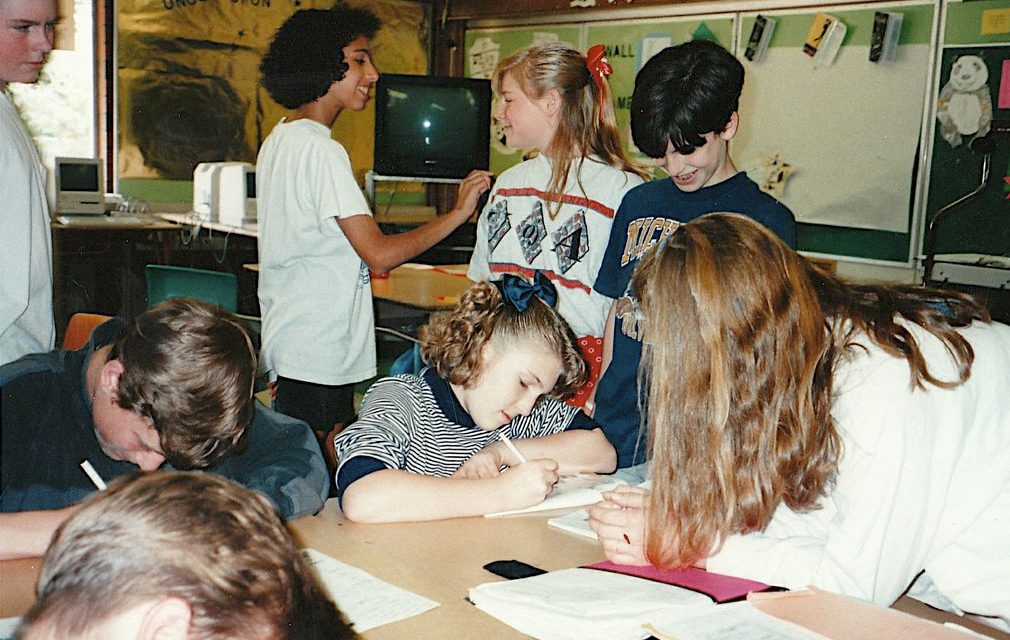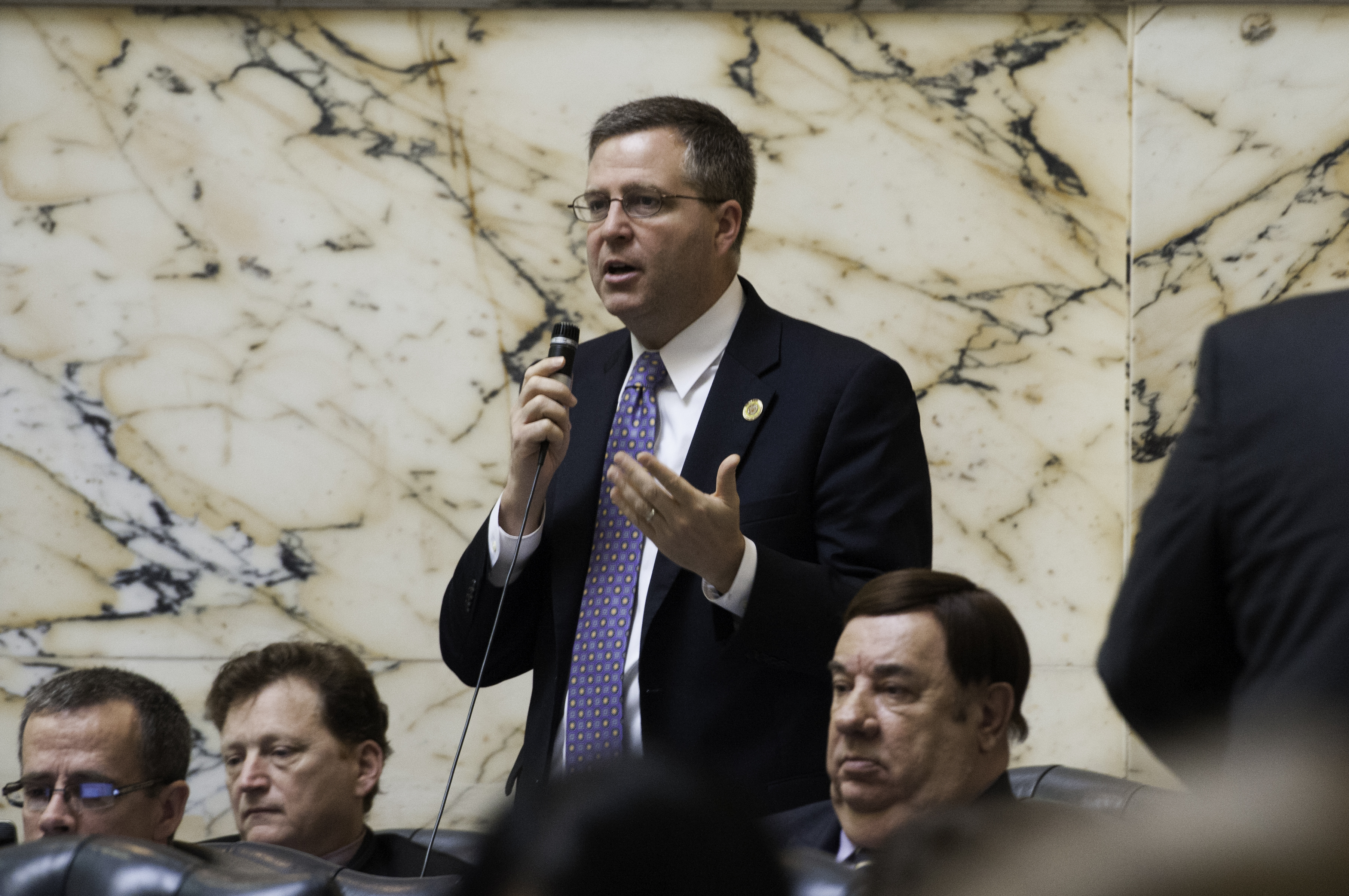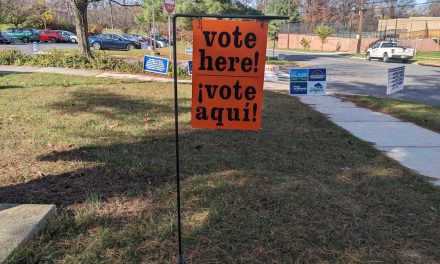But now, at least five years on, the state says it has no proof that resource officers make schools safer.
“In Maryland, we have no data on whether or not actual school resource officers are effective (or) work or don’t work,” said Michael Rudinski, regional training and certification specialist for the Maryland Center for School Safety.
Even so, in a recent survey conducted by the Capital News Service, 34 school board candidates across the state cited school resource officers as the key to school safety. All 102 candidates who participated agreed that school safety is a problem that needs to be addressed, and many candidates suggested increased access to mental health services as another possible solution.
The survey also asked the candidates what the most important issue facing their school board is. Ten responded with school safety. The only issues that ranked more often as most important were pandemic-related learning loss, overall academic performance and the teacher shortage.
School resource officers
Rudinski explained that before the state’s Safe to Learn Act of 2018, there was no real definition of resource officers. The act defines school resource officers as law enforcement officers who have “a memorandum of understanding between a local law enforcement agency and a local school system” or who belong to the Baltimore City School Police Department.
Under the Safe to Learn Act, Rudinski’s office at the State Department of Education had trained all school resource officers across the state by Sept. 1, 2019. The Maryland Center for School Safety trains officers to handle sensitive school situations, but school boards may put their own alternative training in place.
Not long after all that training concluded, though, the COVID-19 pandemic shuttered the schools. Rudinski said that’s prevented his office from doing any long-term evaluation of how effective school resource officers really are.
School resource officers remain valuable despite the lack of data about their effectiveness, according to Christopher Fraley, Region 2 director for the National Association of School Resource Officers.
He stressed, though, that resource officers are located in schools to prevent trouble, but not to punish individual students.
“One of the biggest things I think that sometimes comes into confusion is that SROs should not be used for disciplinary reasons,” said Fraley, an Allegany County resident whose wife, Tammy Fraley, serves on Allegany County’s Board of Education.
SROs and the candidates
School board candidates from across the state frequently mentioned school resource officers as the best way to keep schools safe. But those school cops do different things in different places, prompting some candidates to express concerns about how those officers are being used.
A Baltimore County District 4 candidate, Samay Kindra, said he was concerned that the county leads the state in arrests by resource officers.
“This highlights the problem of unclear delineation between situations where law enforcement intervention is appropriate and where school-based administrative procedures are appropriate,” Kindra said.
Howard County candidate Linfeng Chen, however, said resource officers play a vital role, especially now with the national concern about school staff shortages.
“School resource officers are important to maintaining a safe environment for students to learn,” Chen said. “It makes sense to have SROs now more than ever if we consider staff shortages and increased school fighting and acting out issues.”
Montgomery County stationed officers in schools beginning in 2002, prompted by the Columbine High School shootings in 1999, but in 2021 – amid criticism that students of color were disproportionately subjected to discipline from SROs – the in-house school officer program was ended.
Now Montgomery County has another form of school resource officers called community engagement officers. The engagement officers are not permanently stationed inside schools, but schools can make requests for them to come to schools when needed.
But some Montgomery board candidates suggested that may not be enough. Scott Joftus, an incumbent board member running for re-election in District 3, said more unarmed security officials may be needed in the county’s schools. And Joftus’ opponent, Julie Yang, also called for changes.
“Recent incidents have exposed the need to improve our schools’ intercom system, training for staff on safety protocol procedures, and crisis communication with the community,” Yang said.
Other safety measures
Other candidates stressed that school safety doesn’t begin and end with school resource officers. Many board hopefuls suggested expanding access to mental health resources in the state’s schools, while others suggested combining that with additional security measures.
“We need to make sure our buildings are safe, but we also need to address the mental health crisis within our student population,” said Karin Miller, a board candidate in Wicomico County’s District 2. “It should not be a question of school resource officers OR social workers; they both have a role to play in creating a safe atmosphere within our schools.”
Rae Gallagher, a board candidate in Frederick County, agreed.
“Safety of school buildings is extremely important,” she said. “The most effective strategies to reduce school shootings include incorporating programming that addresses student mental health, training teachers and educators on recognizing signs that a student may be considering harming oneself or others, ensuring that school buildings are secure, and partnering with policymakers at the state level on common sense gun laws.”
Other candidates stressed that school resource officers and mental health access are just parts of what should be a comprehensive approach to school safety.
“I will continue to advocate for funding for new clean energy school buildings that are built with the features of secure front entrances and modern doors and locks; improve safe walking paths to schools and advocate for a fully staffed crossing guard program; promote mitigating COVID-19 spread through a high vaccine rate; and, support budgets with increased services for bullying prevention and restorative approaches to conflict resolution,” said Pamela Boozer-Strother, who is running for re-election in Prince George’s County’s District 3.
Luc Angelot, a candidate in Wicomico County’s District 1, said school safety has been on his mind for half his life.
“I am very concerned about school safety,” said Angelot, who’s 18 years old. “I was 9 years old when the Sandy Hook shooting took place. My generation grew up fearing a possible shooting happening at any moment.”
That being the case, Angelot said, school safety has to be a top priority.
“From my plan to make mental health a priority to continuing to work with local law enforcement, retrofitting our buildings to be well secured, and taking social media threats seriously, we can do things to make sure students feel safe,” he said.







Recent Comments